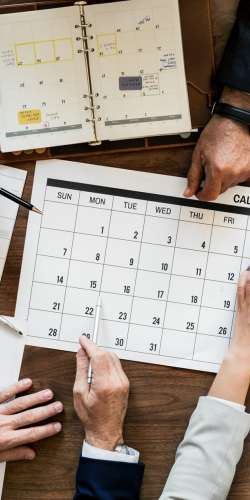Have you applied to voluntarily dissolve your company and subsequently realised that the dissolved company still owns assets, for example cash in a bank account or a property or a right to bring a claim against the company’s bank?
If so, you may be aware that all the assets of the company at the date of its striking off are transferred to the Crown, bona vacantia. “Bona Vacantia” means vacant goods and is the name given to ownerless property, which by law passes to the Crown.
If you would like to recover any such assets you will need to restore the company to the Register of Companies and apply to the Crown’s representative to release such assets back to the company.
We can help you to restore the company, whether to continue trading it or simply to rescue assets.
How To Restore A Company
There are two ways to restore a company, depending on why the company was struck-off:
Administrative Restoration
You can only apply for an administrative restoration if the following conditions apply:
(a) The company was struck-off by the Registrar of Companies where the company:
- Failed to file accounts or an annual return or
- Has been wound up and the liquidator has ceased to act
(b) The application to restore is no more than 6 years from the date of dissolution; and
(c) All documents required to be filed such as accounts and annual returns are duly filed up to date together with any late filing penalties paid
If the above conditions apply, the application to restore can be made using a form available online from Companies House, accompanied with a statement of compliance and a fee of £100.
If any assets of the company have been vested in the Crown bona vacantia, the necessary consent from the Crown representative must also be obtained, which may also incur a fee.
Court Application to Restore
You must use the court procedure to restore the company if the following conditions apply:
- As per condition (a) above for an administrative restoration or (b) if a voluntary application to dissolve the company was made by the directors or (c) if the company has been dissolved following an administration or winding up; and
- The application to restore is no more than 6 years from the date of dissolution, unless the purpose of the restoration is to bring a personal injury claim against the company, in which case there is no time limit for the application.
If the above apply, we can make a court application on behalf of the company to restore it. In addition to the court application, any assets vested in the Crown bona vacantia must be waived by the Crown representative or recovered by way of a vesting order.
There are fees payable in relation to the court application itself, to the Registrar of Companies in respect of the application and to the Crown representative (if applicable).
Which procedure applies to your company?
As to which procedure applies to your company (an administrative restoration or a court application to restore) will depend on:
- The reason why the company was dissolved. If the company was voluntarily struck off by its directors, the company may only be restored by way of a court application and
- The purpose for which the company is to be restored. If the company needs to be restored purely to rescue assets which have transferred bona vacantia, a court application may in certain circumstances be more suitable. This is because a court application may state that the company does not need to continue trading following its restoration and therefore may avoid the expense of filing any outstanding accounts or paying any penalties.
Our Approach to Company Restoration
Our specialist Corporate and Litigation Solicitors have many years’ experience advising in relation to the restoration of companies.
We provide clear legal advice and make sure we explain the whole process to our clients.
We have a wealth of experience in restoring companies to the register, for example, acting for:
- A consultant to restore his consultancy company in order to recover cash left in a bank account after the company had been liquidated and then dissolved.
- Directors of a company who were bringing a mis-selling claim against their bank where the right to bring the claim belonged to the struck-off company.
- A holding company which had failed to properly transfer a property from one of its subsidiary companies which was subsequently struck off and
- A large number of motor trade businesses to pursue VAT claims against HM Revenue & Customs for companies that had been struck off many years previously.
Testimonials
Why Work With Our Corporate Lawyers?
- We have been ranked as a Top Tier law firm by the Legal 500 for the last seven years.
- You will receive city-quality corporate law advice at regional prices.
- Price transparency - we provide our clients with an estimate at the outset of any piece of work with ongoing updates throughout the matter.
- Our 5 Corporate Partner led service ensures you receive the very best legal advice and commercially minded support.
- We have a large team with experience across a diverse variety of sectors, focused on achieving your objectives and hitting your deadlines.
- We are a full-service law firm operating from a one-site office, which means our teams communicate effectively and efficiently and our Corporate Lawyers can draw on support from other specialist lawyers such as property and employment lawyers.
- Our Corporate Solicitors use the latest technology to ensure that we are working as efficiently as possible and that geographical distance is no bar to us from providing you excellent client service.
- We were the winners of ‘Corporate Team of the Year 2021’ at the Manchester Legal Awards.
- Take a look at the Myerson Promise for further benefits of working with us here.
Meet Our Company Restoration Specialists
Home-grown or recruited from national, regional or City firms. Our specialists are experts in their fields and respected by their peers.
Contact Our Experts
You can contact our lawyers below if you have any more questions or want more information:






